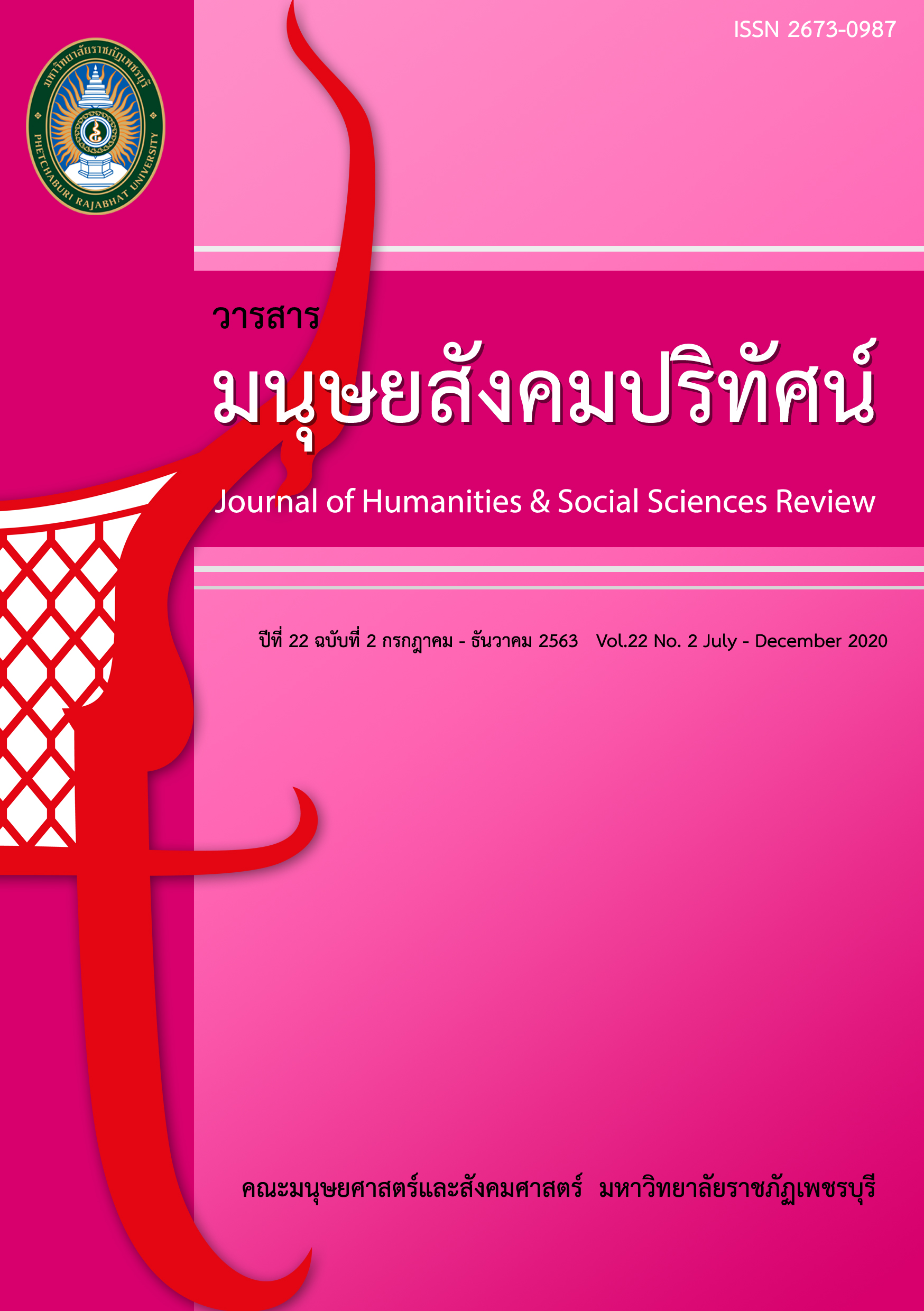Learning Management by STEM Education to Develop Science Process Skill and Task Creative Ability of Matthayomsuesa 1 Students
Main Article Content
Abstract
The purposes of this research were to 1) compare the achievement of learning on heat of Matthayomsuesa 1 students before and after being taught by using STEM education, 2) study the development of science process skills, and 3) assess the student's task creative ability. The samples of this research consisted of 22 Matthayomsuesa 1 students of Wat Bangnoi School (jamprachanikun) by using simple random sampling. The research instruments were 1) lesson plans using by STEM education, 2) an achievement test, 3) a science process skill assessment, and 4) a task creative ability assessment. The experimental research was used in this study. The data were analyzed by mean (), standard deviation (S.D.), and t-test of dependent. The result of the research showed that after being taught by STEM education, students’ learning outcomes on heat were higher than before the instruction, science process skill on heat in overall was good and high developed, and task creative ability was good.
Article Details
1. Any views and comments in the article are the authors’ views. The editorial board has not to agree with those views and it is not considered as the editorial board’s responsibility. In case, there is any lawsuit about copyright infringement, it is considered as the authors’ sole responsibility.
2. The article copyright belonging to Faculty of Humanities and Social Sciences, Phetchaburi Rajabhat University are copyrighted legally. Republication must be received direct permission from the authors and Phetchaburi Rajabhat University in written form.
References
2. กระทรวงศึกษาธิการ. (2560). ตัวชี้วัดและสาระการเรียนรู้แกนกลาง กลุ่มสาระการเรียนรู้วิทยาศาสตร์ (ฉบับปรับปรุง พ.ศ. 2560) ตามหลักสูตรแกนกลางการศึกษาขั้นพื้นฐาน พุทธศักราช 2551. กรุงเทพฯ: โรงพิมพ์ชุมนุมสหกรณ์การเกษตรแห่งประเทศไทยจำกัด.
3. จรรย์สมร เหลืองสมานกุล. (2559). การพัฒนากิจกรรมการเรียนรู้วิทยาศาสตร์เพื่อส่งเสริมทักษะทางวิทยาศาสตร์และความสามารถในการประดิษฐ์สิ่งประดิษฐ์ของนักเรียนชั้นประถมศึกษาปีที่ 3 (การพัฒนากิจกรรมวิทยาศาสตร์เพื่อการพัฒนาทักษะทางวิทยาศาสตร์และการสร้างความสามารถใน การประดิษฐ์ของนักเรียนชั้นประถมศึกษาปีที่ 3. วารสารศิลปากรศึกษาศาสตร์วิจัย มหาวิทยาลัยศิลปากร, 8(1), 267-282.
4. ทวีป แซ่ฉิน. (2556). การพัฒนากิจกรรมการเรียนรู้ตามแนวทฤษฎี Constructionism เพื่อพัฒนาทักษะ การเขียน โปรแกรมด้วยโปรแกรม App Inventor สำหรับนักเรียนชั้นมัธยมศึกษาตอนปลาย. วิทยานิพนธ์ปริญญาการศึกษามหาบัณฑิต มหาวิทยาลัยนเรศวร.
5. ทิศนา แขมมณี. (2545). ศาสตร์การสอนองค์ความรู้เพื่อจัดกระบวนการการเรียนรู้ที่มีประสิทธิภาพ. กรุงเทพฯ: จุฬาลงกรณ์มหาวิทยาลัย.
6. พรทิพย์ ศิริภัทราชัย. (2556). STEM Education กับการพัฒนาทักษะในศตวรรษที่ 21. วารสารนักบริหาร, 33(2), 49-56.
7. พลศักดิ์ แสงพรมศรี, ประสาท เนืองเฉลิม และ ปิยะเนตร จันทร์ถิระติกุล. (2558). การศึกษาเปรียบเทียบผลสัมฤทธิ์ทางการเรียนทักษะ กระบวนการทางวิทยาศาสตร์ขั้นสูงและเจตคติต่อการเรียนเคมี ของนักเรียนชั้นมัธยมศึกษาปีที่ 5 ที่ได้รับการจัดการเรียนรู้สะเต็มศึกษากับแบบปกติ. ศึกษาศาสตร์ มหาวิทยาลัยมหาสารคาม, 9 (พิเศษ), 401-418.
8. วรรณทิพา รอดแรงค้า และพิมพ์พันธ์ เดชะคุปต์. (2542). กิจกรรมทักษะกระบวนการสำหรับครู. กรุงเทพฯ: สถาบันพัฒนาคุณภาพชีวิต.
9. วิจารณ์ พานิช. (2556). การสร้างการเรียนรู้สู่ศตวรรษที่ 21. กรุงเทพฯ: โรงพิมพ์ ส.เจริญการพิมพ์.
10. American Association for The Advancement of Science. (AAAS). (1970). Science Process Approach. New York : Comantary for Teacher. AAAS.
11. Campbell, D.T. & Stanley, J.C. (1967). Experimental and quasi-experimental designs for research. Chicago: Rand McNally.
12. Joyce, B, & Weil, M. (1996). Model of teaching. 5th ed. Boston: Allyn and Bacon.


